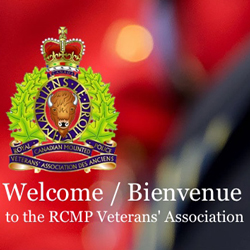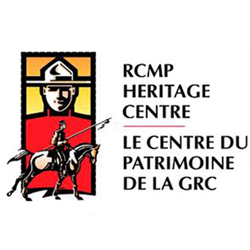John Stolarski’s Old Newspaper Clippings
With the exception of his first two years in the Force, John Stolarski spent his entire career as a RCMP Police Dog Services handler (1961 – 1988).
Throughout this career, John clipped newspaper articles about members who he had worked with.
Despite the fact that John has passed away, his family has agreed for us to re-post these articles for the interest of RCMP Veterans and current members of the Force.
For this week, we have included several news articles which relate to the Vancouver Police department and their police dog members.
YOUNG DOGS LEARN OLD POLICE TRICKS
February 7, 1977 (Victoria Times – story by Derek Sidenius) – Dana is one of the smallest members of the Royal Canadian Mounted Police. He weighs only 86 pounds.
But no one kids him about his size.
Dana is a police dog, a three-year-old German Shepherd.
Officially he’s regimental dog No. 124, but everyone call him Dana… nice Dana… good Dana.
In many ways, he’s just like any other young Shepherd, a bouncing, vigorous, inquisitive package of brown and black fur and lashing tongue.
In the hands of his master, Sgt. Wally Regitnig, however, it’s a different story. All Regitnig has to do is motion with his arm or utter a short, clear instruction and Dana snaps to attention, his rear end wiggling with excitement in anticipation of the challenge ahead.
It could be to track a lost child, hunter or fugitive. it could be search for drugs moonshine or explosives. A slight variation in Regitnig’s command and tone of voice tell Dana what the specific task is and off he goes with – how else to say it? – dogged determination.
Dana is the fifth dog Regitnig has had in his 25 years with the force.
He is the top dog master in B.C. supervisor of the 22 RCMP dolmen on the Lower Mainland and mentor to 11 other RCMP dog teams scattered throughout the province, including two stationed at Nanaimo which cover Vancouver Island.
He service has taken him across Canada. he once tracked 113 miles along the Alaska Highway for the body of a murder victim. His dog found it. Another time he spent seven months on a search through northern Saskatchewan for a man who shot and killed two mounties. Again the dog found the suspect, long-dead from a self-inflicted wound.
Only a few of the searches are as rigorous or as lengthy but, Regitnig says, the exceptions prove the rule: If you want to be a dogma, you better be prepared for anything.
Last year the section carried out 1,980 searches in B.C., of which 671 ended successfully.
All of the dogs used by the RCMP – there are 62 in Canada – are Shepherds, regarded world-wide as the most adaptable breed for police work.
They are “appropriately aggressive,” Regitnig says, generally have a good temperament, are strong, controllable, fearless and have an extraordinary tracking ability.
So keen is their sense of smell they can distinguish while tracking one human scent from another. This is all the more amazing which you consider the scent is produced by nothing more than the tiny bacteria and epithelium sloughed continuously off a person’s body.
Examples of their ability are legion. One dog located the body of a man buried under 21 feet of snow. Another found a pinch of heroin that had been hidden in the core of an apple and stuffed at the bottom of a box full of apples.
Reigning says dog masters soon learn to trust their animals. Once while searching a residence for drugs, Dana pointed his nose into a box of dog food and refused to budge. Sure enough, Regitnig discovered one of the cellophane packets had been carefully slit open and a cap of heroin inserted in the food.
Like all dog masters, Regitnig keeps his dog at home. He has a kennel in his backyard. he alone feeds the animal – 1 1/2 pounds of raw meat and one pound of dry meal a day – and grooms and tends to its needs.
Dana’s entry into the force is fairly typical. Two years ago a Kamloops police officer offered him for sale.
The dog was sent to the national police dog centre at Innisfail, Alta., and underwent an intense 14-week training program. He passed with flying colors.
It’s not always that easy. Staff Sergeant Terry Kehoe, senior training officer at the centre, says only about one dog in 150 ever meets the rigid standards.
To quality for training the dog must be between nine to 14 months old, show obedience, courage and intelligence, and perhaps most important, displays no sign of hip displace, a hereditary affliction of the hip joint wide-spread in the breed.
Chow says recruiting good dogs has been “one big headache.” As a consequences, last summer the Innisfail kennel started its own breeding program.
It’s just the opposite recruiting dog masters, however. In B.C. alone there are more than 40 names on a waiting list.
One is Constable Paul Higgins of the Colwood RCMP detachment.
Higgins, 25, realizes that even to be considered for the job he has to prove himself as a quarry, or decoy, at the training centre, subjecting himself to the fury and might of a dog in full attack.
Last week he had his first taste of action in a demonstration especially arranged for the Times by Regitnig.
Higgins was succinct in his appraisal. “It was a crushing experience.”
But he’s not put off. He says his three years of general duty patrol he couldn’t count the number of times that immediate access to a dog would have been invaluable. As it is now one to two hours elapse before the dog master can get down from Nanaimo.
Higgins’ boss, Staff Sgt. Ted Foster, is a strong believer in dogs. He’s had a request in for one for the past three years. Maybe next year he’ll get his wish, he says. If not, there’s always the year after.
The problem is expense. Reigning says a dog unit costs about $30,000 a year.
He’ll jump on anyone who regards the unit as a luxury, however.
“There’s not a dog in the field that hasn’t saved at least one life. How do you put a price tag on that?”
NOTE: Walter Joseph Ottomar Regitnig (Reg.#17364) retired from the Force on April 3, 1989 and passed away on July 2, 1992 at Delta BC. As a member of the Force, he served in “H”, “B”, “F”, “E”, “K” Divisions. At the time of his retirement, he was the Supervisor of all RCMP Police Service Dog Teams in British Columbia. One of Wally’s popular sayings was “to be a good dog handler, one has to be smarter than the dog.”


 September 22, 2015
September 22, 2015 










